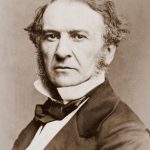First, a note of English grammar: the phrase is correct; the word ‘years’ does not need a possessive apostrophe, as the term clearly means “The war of a hundred years”. The blogger may grin all she or he wants, but I have seen books with apparently learnéd writers use both “year’s” amd even “years’”. I will explain; the guilty word is an adjective, modifying the word ‘War’. It is not a possessive, as in ‘the cat’s cradle’, or the ‘boys’ dog. Remember also that plurals are not constructed with an apostrophe. It is not ‘There are too many politician’s in Barcelona’. The word is simply the noun plus ‘s’ = politicians.
So, the Hundred Years War was a lengthy period of conflict between two countries, France and England. It went on for more than a century between the 1330s and 1450s: but it was not one continuous armed scrimmage, but rather series of attempts made by English kings (wouldn’t you know it?) to invade, embattle, dominate, occupy and rule France. The French quite naturally objected.
These days we must talk of ‘issues’ pronounced ‘ishoos’ and there are two important ones here – the sovereignty of Gascony where the English king was automatically Duke, and resented paying homage for it to the kings of France. The second was Edward III’s claim, through his mother, to the French throne, after the death of the last Capet king. There were also business issues, such as the lucrative Flanders wool trade, and the French habit of lauding and financing Scottish invasions of England.
In 1328 Philip VI of Valois became King of France and quickly confiscated Aquitaine (1337). This provoked the warlike and hot-tempered Edward to invade France one year later. The English first won a naval engagement at Sluys (1340), and then the celebrated land victories at Crecy (1346 qv.) Calais and Poitiers (1356 qv.). The last named was the battle in which Edward’s oldest boy Edward the Black Prince captured and afterwards ransomed Philip’s successor Jean II. The Treaty of Bretigny (1360) gave Edward large territories in France on the assumption he give* up claims to the French throne. During the reign of Edward’s grandson the weak Richard II, the French improved fortifications, navies and armies, taking advantage of a temporary peace.
England doggedly held on to Calais and Bordeaux, greatly important to shipping and commerce, and this reluctance to hand them over caused unrest among the French, who were averse to having English provinces in their territory. They complained, and the Dauphin sarcastically sent a famous present of tennis balls to the new, vigorous, and highly dangerous young Henry V (who had previously been known as Prince Hal). Declaring that he would play a few sets against the French, Henry landed near Harfleur, took the town by force, and proceeded towards Paris. Lack of supplies meant the small army was forced to ‘live off the land’ as it marched. Diseases (the flux and dysentery) decimated them effectively. By the time the army reached the village of Agincourt the men were exhausted and depressed. A huge, fully armoured French force with bellies full was waiting for them. The Battle of Agincourt (1415) has been fully detailed in this blog.
Henry occupied Normandy, and a lot of northern France. The Treaty of Troyes (1420) forced the French king to disinherit the tennis-playing Dauphin in favour of the English kings. Everything seemed fine but then Henry V died suddenly of illness, not wounds (1422), but not before marrying the French princess Catherine (the widow went on to become famous for having illegitimately sired the Tudors qv.)
Henry’s son (Henry VI) was less than half-witted, though he did manage to found Eton, and his regents lost considerable territory in France. Henry’s warlike brother the Duke of Bedford lost to the entirely magical Joan of Arc and her voices, though his bishops persuaded the French to burn their own patron saint at Rouen. The English were soundly trounced at Orléans and by 1450 the French had regained Normandy, most of Gascony and Bordeaux (1453). This was the effective end of the endless years of war, and England retained only Calais, which Tudor Mary I managed to lose in 1558.
Fed up with warring, the English gave up their pretensions to France and settled down to a bloody conflict within their own shores, known as The Wars of the Roses (qv.) There was one good thing though, for France: the Hundred Years War had knocked virtually all the French nobility out of the game, and the Valois monarchy was able to emerge in a strong position.
Phases:
Ist Phase 1337 – 1356 (ends with Edward the Black Prince victorious at Poitiers).
2nd Phase 1360 – 1410 (ends with a civil war between Burgundians and Orleanists which weakens France).
3rd Phase 1413 – 1453 (ends with England holding only Calais. Enfeebled and distracted by the Wars of the Roses, England forgets about trying to conquer France).
* A rare example of the English subjunctive









Leave A Comment